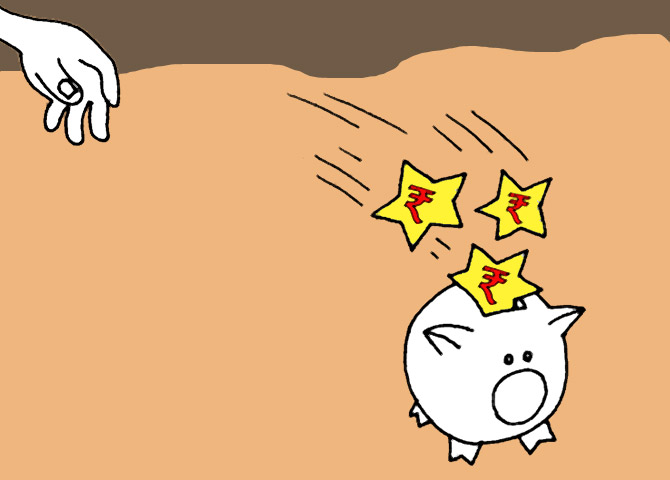
Just calculate the savings six months after you follow these rules and you will always thank yourself for reading this piece today!
A recent study in India reveals that people in the income group of up to Rs 3 lakh per annum and below the age of 35 have 3 to 4 credit cards on an average, between 35 and 40 years own 3 credit cards, between 41 and 50 years have 1 to 2 credit cards, and above 51 just one credit card.
It also says that those who own more credit cards are more indebted compared to others. And they pay interest rates between 18 to 36 per cent per annum. Literally paying through the nose!
Will anyone call such people financially responsible?
When home loan lending rates are at 10.5 per cent per annum, car loans at 11.55, consumer durable loans at 12.5 per cent and personal loans at 14 per cent, why pay credit card companies an interest rate of 18 per cent and above. Is it not foolish?
Does it mean you should not have a credit card?
You should have credit cards but never more than two. It will be easier to be financially responsible if you have only two cards and follow 5 golden rules of maximising returns on your credit card discussed here.
Please click NEXT for more
The author is an MBA (Finance) and Certified Financial Planner. He is the director and chief financial planner of Holistic Investment Planners (holisticinvestment.in) a firm that offers Financial Planning and Wealth Management. He can be reached at ramalingam@holisticinvestment.in.

Golden Rule No. 1: Pay 100 per cent of your credit card bills as far as possible
This way you will reduce your interest outgo to a bare minimum. Whenever you are in a mood to buy consumer durables or a car or improve your home, go for bank loans that charge much lower interest rates.
Please do not delay your payments on credit cards. You may not know this but credit card companies can shame ‘Shylock’ if you examine their late fees on your credit card.
Golden Rule No. 2: Go for a free card. Avoid annual fees paying credit card
The annual fees which you pay is an additional cost to you, when many reputed banks are coming out with free credit cards.
Please click NEXT for more

Golden Rule No. 3: Be a long term customer
If you are financially conservative (and you should be; if you are not, it is time you become one) then select a reputed credit card company and stick to it following the first two rules.
Why? Are you aware of CIBIL?
The Credit Information Bureau of India Ltd., the only authorised body which rates retail customers to get loans from financial institutions across India, takes your loyalty into consideration while rating your credit score. If you stick with a credit card for longer time your credit rating score improves. Also, your chance of getting a loan, even a bigger loan, from lenders becomes brighter.
Golden Rule No. 4: Never ignore reward points
Reputed credit card companies at least give cash back of 2 per cent on your spending as reward points. Over a long period this is a good return and also a good reduction of costs. Hence please keep track of the minimum cash back as well as seasonal higher cash back and use your credit card judiciously to maximise cash backs.
Golden Rule No. 5: Use maximum credit period of 52 days
This is possible if you use your credit card in the beginning of your credit cycle. If your billing cycle is from, say, 15thof the month, please make maximum use of your card closer to dates after the 15th, (i.e., between the 16th and 25th of the month) and then reduce the use of credit card as much as possible.
If you practice it for few months, things will fall in line. The more your usage is closer to the 15th, the maximum free credit you get.
Well my dear friends, hope you will remember these 5 golden rules and follow them at least for six months (if you do so you will be doing the same again and again). After six months just calculate the savings and you will always thank yourself for reading this piece today!